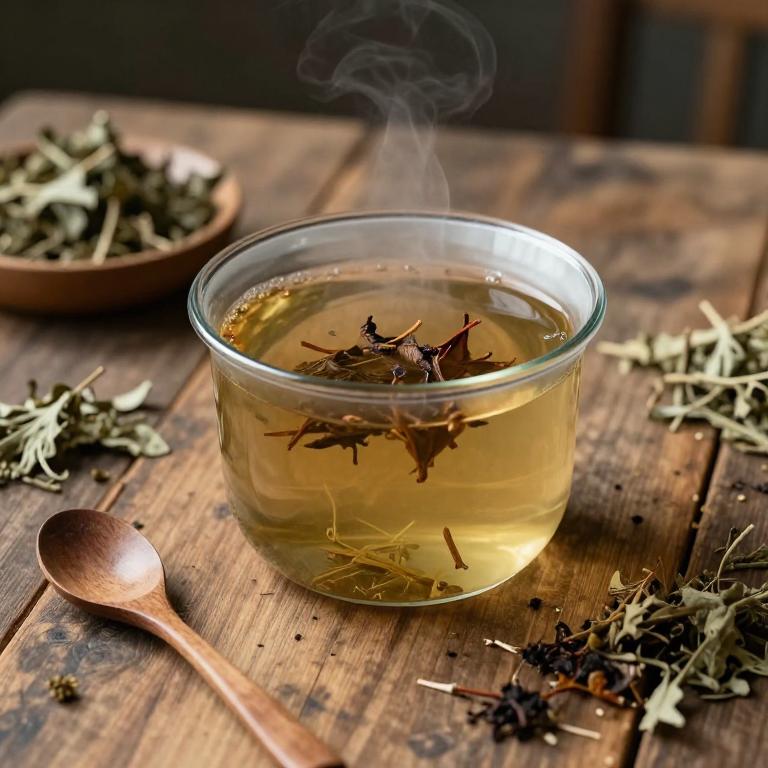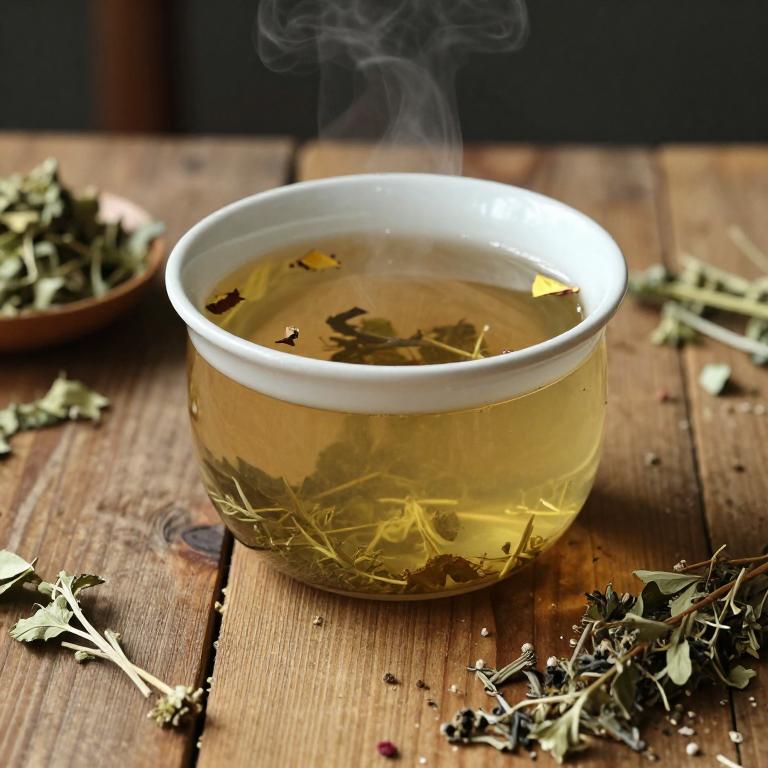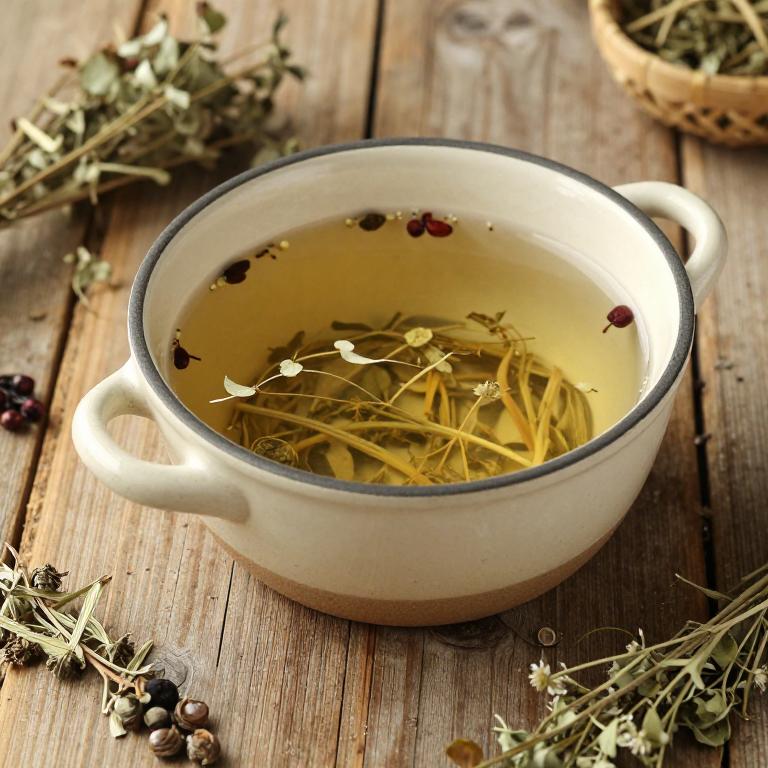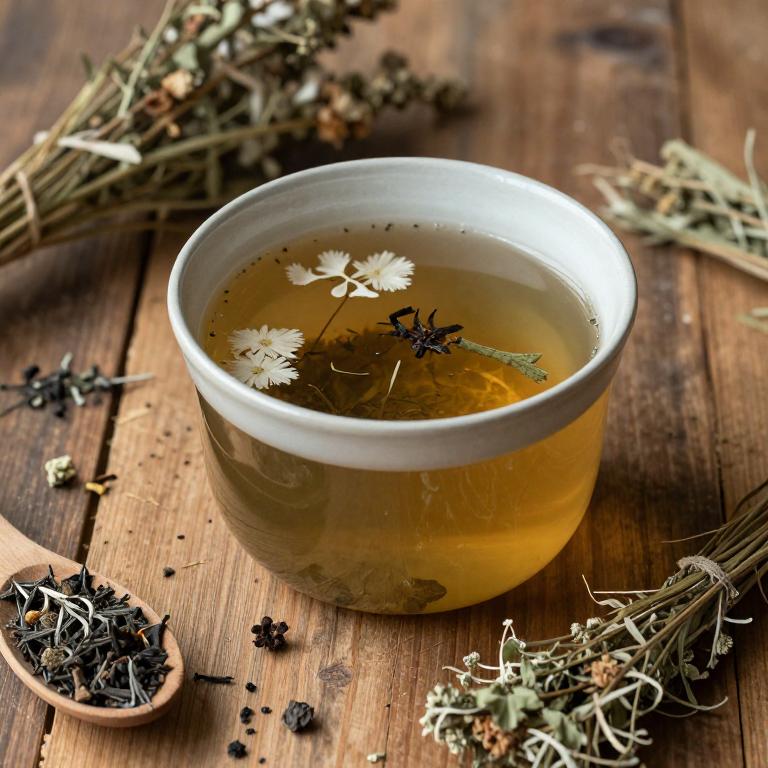10 Best Herbal Decoctions For Insect Bites

Herbal decoctions have been traditionally used to alleviate the symptoms of insect bites by reducing inflammation, itching, and irritation.
Common herbs such as chamomile, calendula, and nettle are often infused in hot water to create soothing poultices or compresses. These natural remedies work by leveraging anti-inflammatory and antihistamine properties found in various plant-based ingredients. Applying a cooled herbal decoction to the affected area can provide immediate relief and promote healing.
While generally safe, it is important to consult a healthcare professional if symptoms persist or worsen, especially in cases of severe allergic reactions.
Table of Contents
- 1. Marigold (Calendula officinalis)
- 2. English lavender (Lavandula angustifolia)
- 3. St. john's wort (Hypericum perforatum)
- 4. Stinging nettle (Urtica dioica)
- 5. Aloe vera (Aloe barbadensis)
- 6. Echinacea (Echinacea purpurea)
- 7. Lemon balm (Melissa officinalis)
- 8. Chaste tree (Vitex agnus-castus)
- 9. Wormwood (Artemisia vulgaris)
- 10. Mountain arnica (Arnica montana)
1. Marigold (Calendula officinalis)

Calendula officinalis, commonly known as garden marigold, is widely used in herbal decoctions for its anti-inflammatory and antiseptic properties.
When prepared as a decoction, calendula can be applied topically to soothe the skin and reduce swelling associated with insect bites. The active compounds in calendula, such as flavonoids and triterpenes, help to alleviate itching and irritation caused by mosquito, bee, or wasp stings. To make a decoction, dried calendula flowers are simmered in water for several minutes, then strained and cooled before application.
This natural remedy is a gentle alternative to commercial insect bite treatments, offering both comfort and healing without harsh chemicals.
2. English lavender (Lavandula angustifolia)

Lavandula angustifolia, commonly known as English lavender, has been traditionally used in herbal decoctions to alleviate symptoms associated with insect bites.
The essential oils and phytochemicals present in lavender, such as linalool and linalyl acetate, possess anti-inflammatory, antimicrobial, and analgesic properties that help reduce swelling, itching, and infection risk. To prepare a herbal decoction, lavender flowers are typically steeped in hot water for several minutes, creating a soothing tea that can be applied topically or consumed internally in small amounts. This natural remedy is particularly valued for its calming effects, which can ease the discomfort and anxiety often associated with insect bites.
While generally safe, it is advisable to perform a patch test and consult a healthcare professional, especially for individuals with allergies or skin sensitivities.
3. St. john's wort (Hypericum perforatum)

Hypericum perforatum, commonly known as St. John's Wort, is traditionally used in herbal medicine for its anti-inflammatory and antiseptic properties.
When prepared as a decoction, it can be applied topically to insect bite wounds to help reduce swelling, redness, and itching. The active compounds in hypericum, such as hyperforin and hypericin, contribute to its antimicrobial and analgesic effects, making it a popular remedy for minor skin irritations. To prepare the decoction, dried hypericum leaves and flowers are simmered in water for about 15 to 20 minutes.
While generally safe for external use, it is important to avoid ingesting the decoction and to consult a healthcare provider if symptoms persist or worsen.
4. Stinging nettle (Urtica dioica)

Urtica dioica, commonly known as stinging nettle, has been traditionally used in herbal medicine for its anti-inflammatory and soothing properties.
A decoction made from the leaves and stems of Urtica dioica can help alleviate the pain and irritation caused by insect bites due to its high content of compounds like histamine and serotonin, which may counteract the effects of insect venom. To prepare the decoction, the dried plant material is boiled in water for several minutes, then strained and applied topically to the affected area. This herbal remedy is often combined with other anti-itching ingredients for enhanced relief.
While generally safe, it is advisable to perform a patch test and consult a healthcare provider if severe reactions occur.
5. Aloe vera (Aloe barbadensis)

Aloe barbadensis, commonly known as aloe vera, has been traditionally used for its soothing and healing properties, including its potential benefits for insect bites.
When prepared as a herbal decoction, aloe vera can be applied topically to reduce inflammation, redness, and itching caused by insect bites. The gel or juice extracted from the aloe plant contains anti-inflammatory and antimicrobial compounds that may help prevent infection and promote skin healing. To make a decoction, the leaves are typically boiled in water, allowing the active components to infuse into the liquid.
While aloe vera is generally safe for topical use, it is important to ensure proper preparation and to consult a healthcare professional if severe reactions occur.
6. Echinacea (Echinacea purpurea)

Echinacea purpurea, commonly known as purple coneflower, is a popular herbal remedy often used to support the immune system and reduce inflammation.
While it is not a primary treatment for insect bites, some studies suggest that its anti-inflammatory and antimicrobial properties may help alleviate symptoms such as swelling and redness. Herbal decoctions made from Echinacea can be applied topically or ingested to promote healing and reduce the risk of infection. However, it is important to consult a healthcare professional before using Echinacea, especially for severe insect bites or in individuals with allergies.
Overall, Echinacea purpurea may serve as a complementary therapy when used alongside standard first-aid treatments for insect bites.
7. Lemon balm (Melissa officinalis)

Melissa officinalis, commonly known as lemon balm, is a herbal plant that has been traditionally used for its calming and soothing properties.
When prepared as a decoction, lemon balm can be applied topically to alleviate the symptoms of insect bites, such as redness, itching, and swelling. The active compounds in melissa officinalis, including flavonoids and essential oils, have anti-inflammatory and antihistamine effects that help reduce irritation. To prepare a decoction, fresh or dried leaves are boiled in water for several minutes and then cooled before application.
While lemon balm is generally safe for topical use, it is advisable to perform a patch test to check for any allergic reactions.
8. Chaste tree (Vitex agnus-castus)

Vitex agnus-castus, commonly known as chaste tree, has been traditionally used in herbal medicine for various purposes, including its potential benefits for insect bites.
While it is more widely recognized for its hormonal and mood-supporting properties, some studies suggest that its anti-inflammatory and antihistamine effects may help reduce the discomfort associated with insect bites. Herbal decoctions made from vitex leaves and flowers are sometimes used topically to soothe irritation and promote healing. However, there is limited scientific evidence specifically supporting its efficacy for insect bite relief, and it is generally recommended to consult a healthcare professional before using it for this purpose.
As with any herbal remedy, individual responses may vary, and it should be used with caution, especially if someone has allergies or is taking other medications.
9. Wormwood (Artemisia vulgaris)

Artemisia vulgaris, commonly known as mugwort, has been traditionally used in herbal medicine for its potential anti-inflammatory and antiseptic properties.
Herbal decoctions made from artemisia vulgaris can be applied topically to insect bite sites to help reduce swelling, itching, and infection risk. The plant contains compounds such as thujone and flavonoids, which may contribute to its medicinal effects. However, it is important to note that artemisia vulgaris can be toxic in high doses and may cause allergic reactions in some individuals.
As a result, it should be used with caution and under the guidance of a qualified herbalist or healthcare provider.
10. Mountain arnica (Arnica montana)

Arnica montana herbal decoctions have been traditionally used to alleviate the symptoms of insect bites due to their anti-inflammatory and analgesic properties.
When prepared as a decoction, the active compounds in arnica, such as helenalin and other sesquiterpene lactones, are extracted to provide soothing effects on the skin. This natural remedy is often applied topically to reduce swelling, redness, and pain associated with bites from mosquitoes, bees, or other insects. However, it is important to note that arnica should not be ingested, as it can be toxic when taken internally.
While generally safe for external use, individuals with sensitive skin should perform a patch test before applying arnica montana decoctions to a larger area.